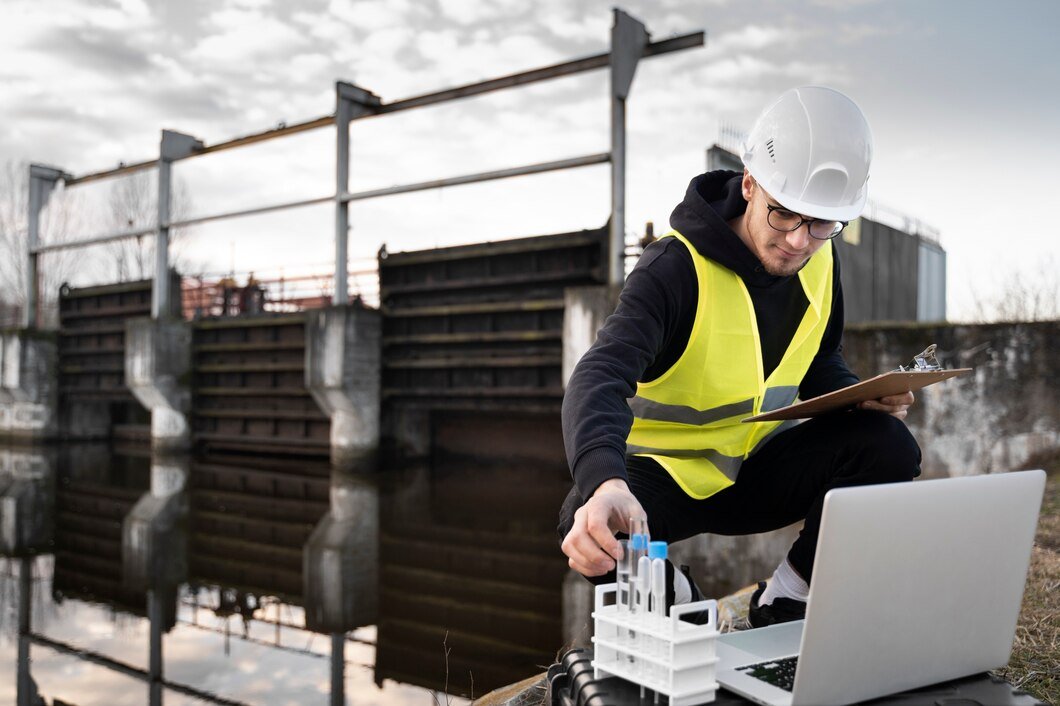The Role of Green Chemistry in Water Remediation
As we grapple with the escalating threats to our planet's health, the need for sustainable solutions has never been more pronounced. Among the many environmental concerns, the issues of water pollution and scarcity hold significant importance.
The field of green chemistry, with its focus on designing products and processes that minimize the use and generation of hazardous substances, has emerged as a beacon of hope. This discussion explores innovative green chemistry solutions for water treatment and remediation, a critical subject where science intersects with sustainability.
These green chemistry techniques are not just environmentally friendly but also economically viable, offering a powerful blend of practicality and responsibility. They strive to effectively treat and remediate water, ensuring its safety for various uses, while minimizing the environmental footprint.
From the use of bio-sorbents for the removal of harmful contaminants to the development of efficient and sustainable filtration systems, green chemistry is redefining the landscape of water treatment and remediation.
Biodegradable Coagulants and Flocculants: A Greener Approach to Wastewater Treatment
Modern wastewater treatment processes are essential in preserving water quality, protecting our environment, and promoting public health. Conventional coagulants and flocculants used in these processes are often derived from nonrenewable sources and may cause secondary pollution. At NanoChem Solutions, Inc., we focus on providing sustainable options that mitigate these issues. Our green chemistry advancements in this area include:
1. Plant-based coagulants: Derived from renewable sources, these biodegradable coagulants are effective in removing contaminants while leaving a minimal environmental footprint. They provide a sustainable alternative to traditional chemical coagulants, ensuring safe wastewater treatment without causing harm to ecosystems.
2. Bio-based flocculants: Functioning as an eco-friendly partner to plant-based coagulants, bio-based flocculants are derived from natural materials, helping to clump contaminants together for easier removal. By employing these biodegradable flocculants, we minimize pollution and make wastewater treatment processes more environmentally friendly.
Advancements in Desalination: Eco-Friendly Solutions for Clean Water
Desalination is a crucial water treatment method in regions with limited freshwater resources. Traditional desalination processes can be energy-intensive and generate waste, calling for innovation in this vital area. Our green chemistry advancements contribute to more sustainable desalination practices, such as:
1. Low-energy desalination technology: We aim to reduce the energy consumption associated with desalination by developing energy-efficient technologies that minimize waste and lower greenhouse gas emissions. By harnessing renewable energy sources, we ensure a more sustainable and greener approach to generating clean water.
2. Sustainable desalination waste management systems: To address the waste generated in desalination processes, we develop sustainable waste management solutions that recover valuable resources and minimize the environmental impact. By recycling waste brine and extracting useful chemicals, we promote resource conservation and environmental protection.
Groundwater Remediation Techniques: Preserving Our Most Valuable Resource
Pollution and contamination of groundwater supplies pose significant challenges for communities around the world, requiring robust and eco-friendly remediation techniques. Our green chemistry advancements in groundwater remediation include:
1. Biological groundwater remediation: We harness the power of naturally occurring microorganisms to degrade or transform pollutants in groundwater, providing an eco-friendly solution to restoring water quality and promoting sustainability.
2. Chemical oxidation using eco-friendly oxidants: By employing green chemistry principles, we develop and use eco-friendly oxidants that can effectively degrade contaminants in groundwater without harming the environment. This sustainable practice ensures clean water for future generations and minimizes adverse environmental effects.
Sustainability Through Education and Collaboration
The success of green chemistry advancements in water treatment relies on continuous collaboration and education between industry stakeholders and local communities. We are dedicated to fostering partnerships and raising awareness of sustainable practices to ensure long-term success. Our efforts include:
1. Engaging in partnerships: We actively engage with organizations, governments, and educational institutions to collaborate on sustainable water treatment projects and share our expertise with diverse stakeholders.
2. Promoting education and awareness: Through training, workshops, and knowledge-sharing initiatives, we aim to empower communities with a better understanding of water treatment, green chemistry principles, and sustainable practices, creating a foundation for long-term environmental stewardship.
Embracing Green Chemistry Solutions for Sustainable Water Treatment
In essence, innovative green chemistry solutions for water treatment and remediation present a practical, sustainable, and eco-friendly approach to managing water resources. At NanoChem Solutions, Inc., we believe in the transformative impact of green chemistry on the water treatment industry. Our dedication to pioneering sustainable, efficient, and environmentally responsible solutions aims to ensure a clean, safe water supply for generations to come.
If you're interested in learning more about our dynamic green chemistry solutions for water treatment and how they can contribute to the sustainable management of your water resources, reach out to us!

